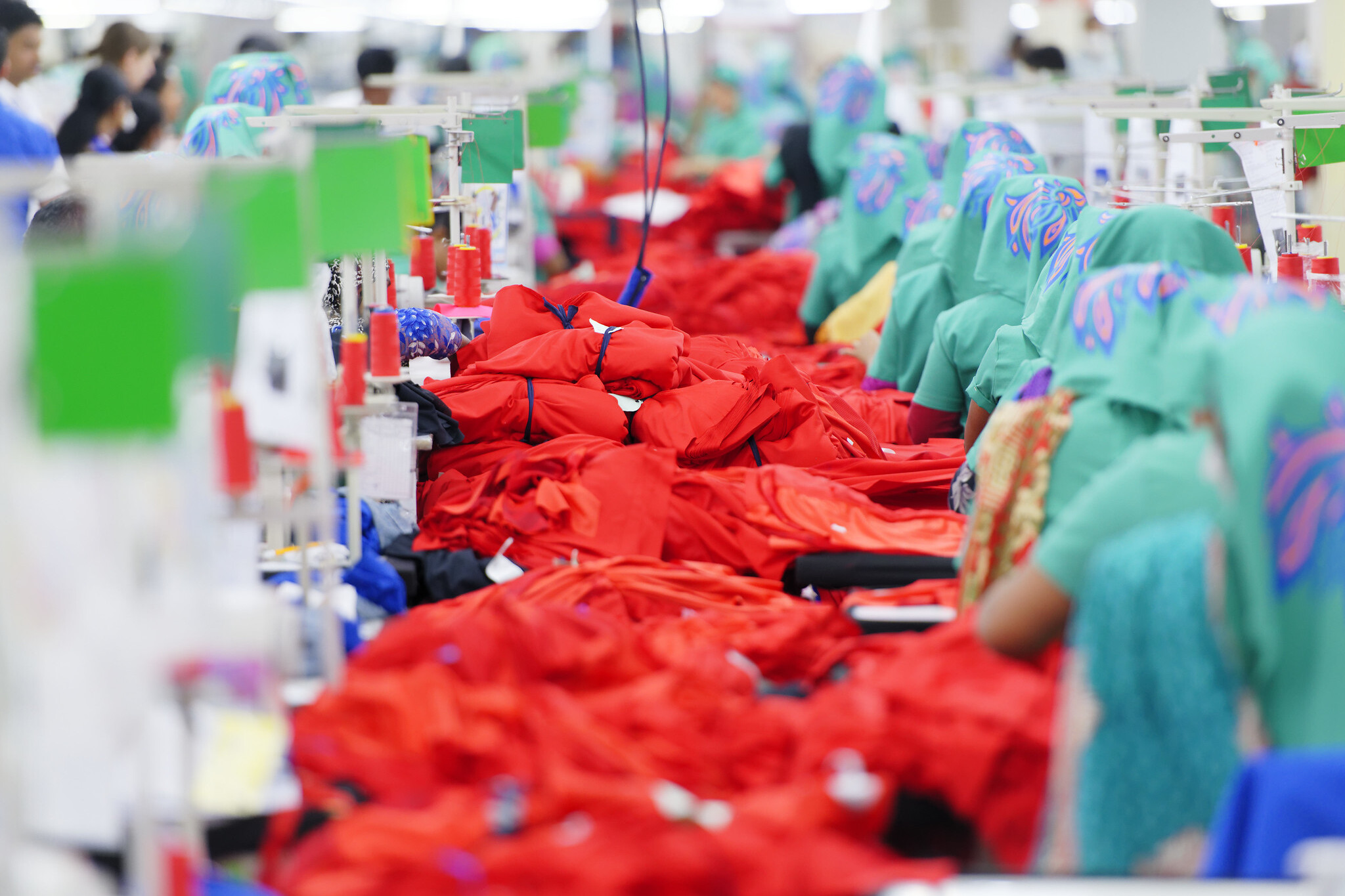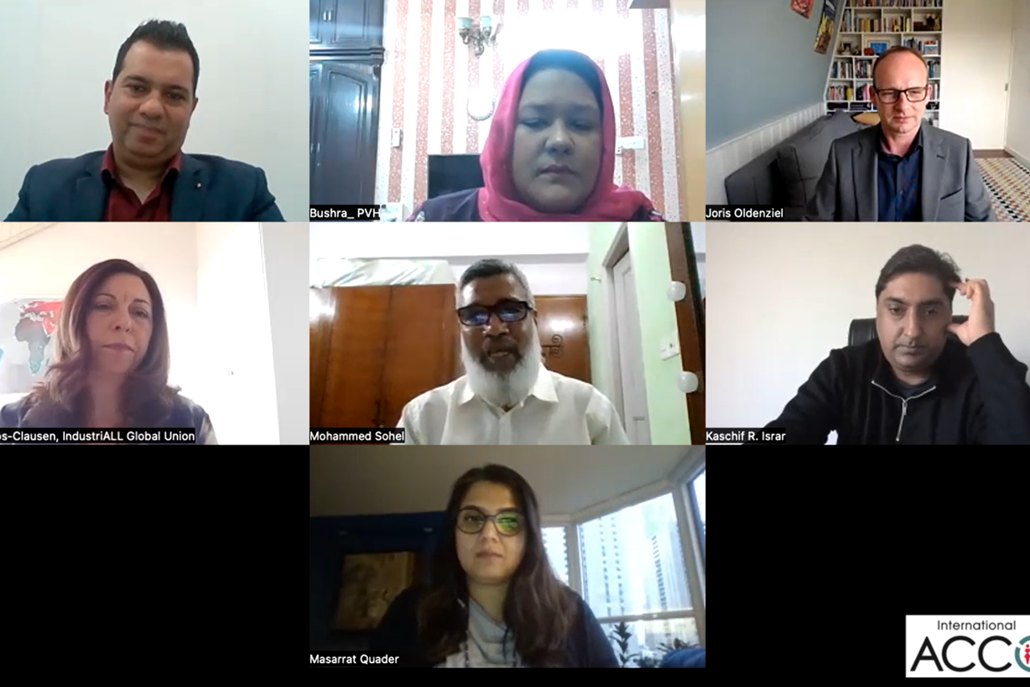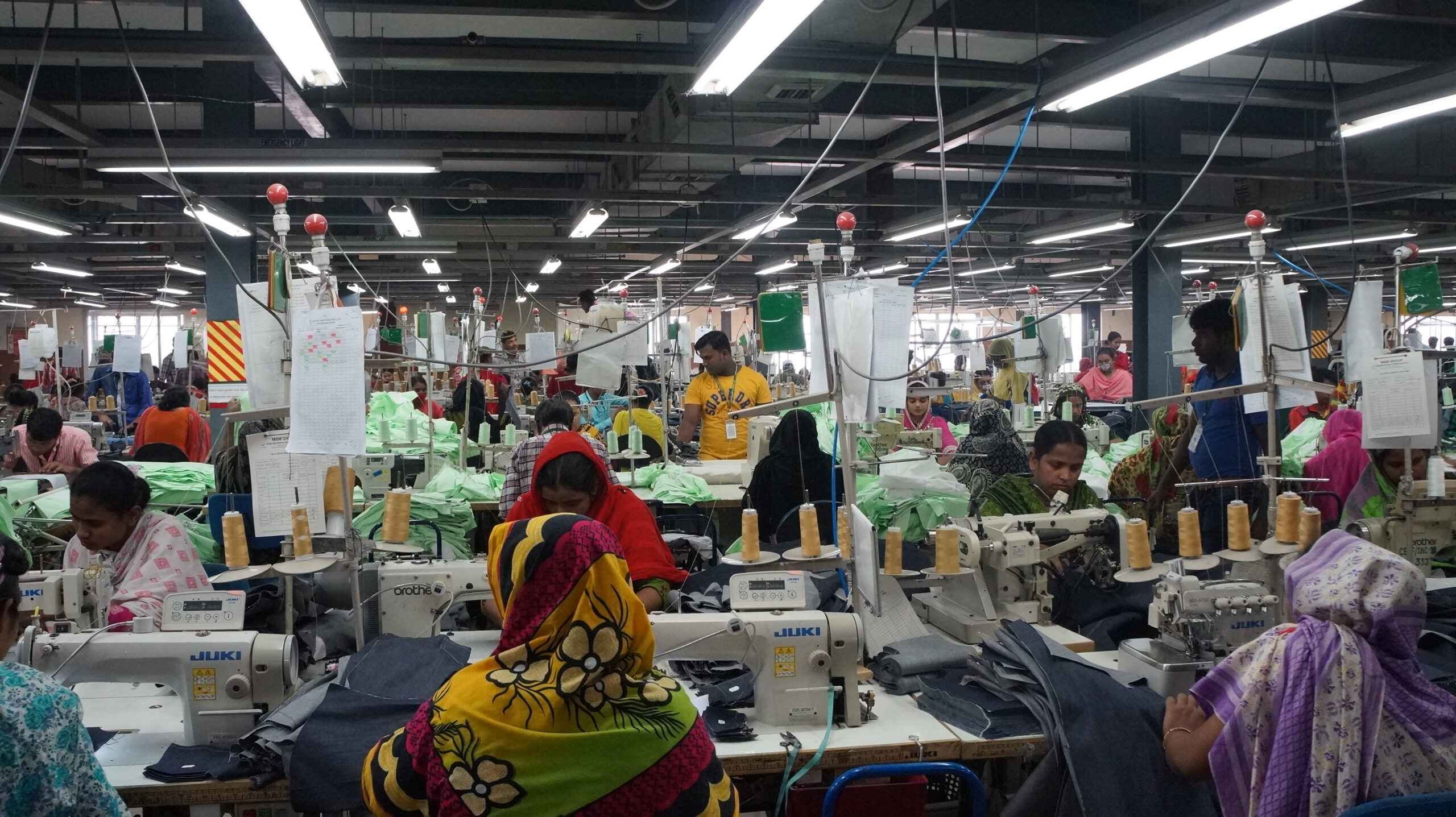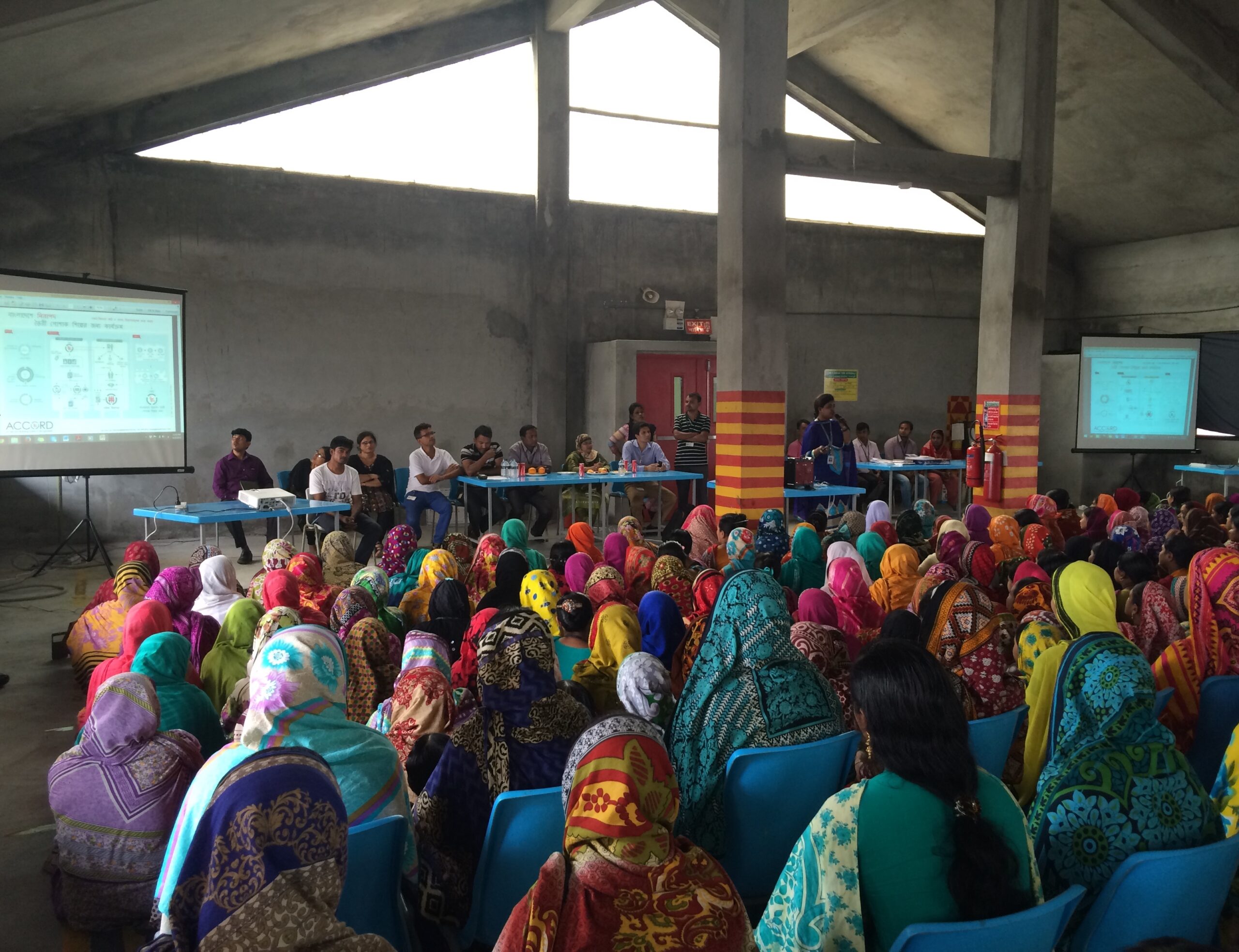Bangladesh Safety Agreement - Origins
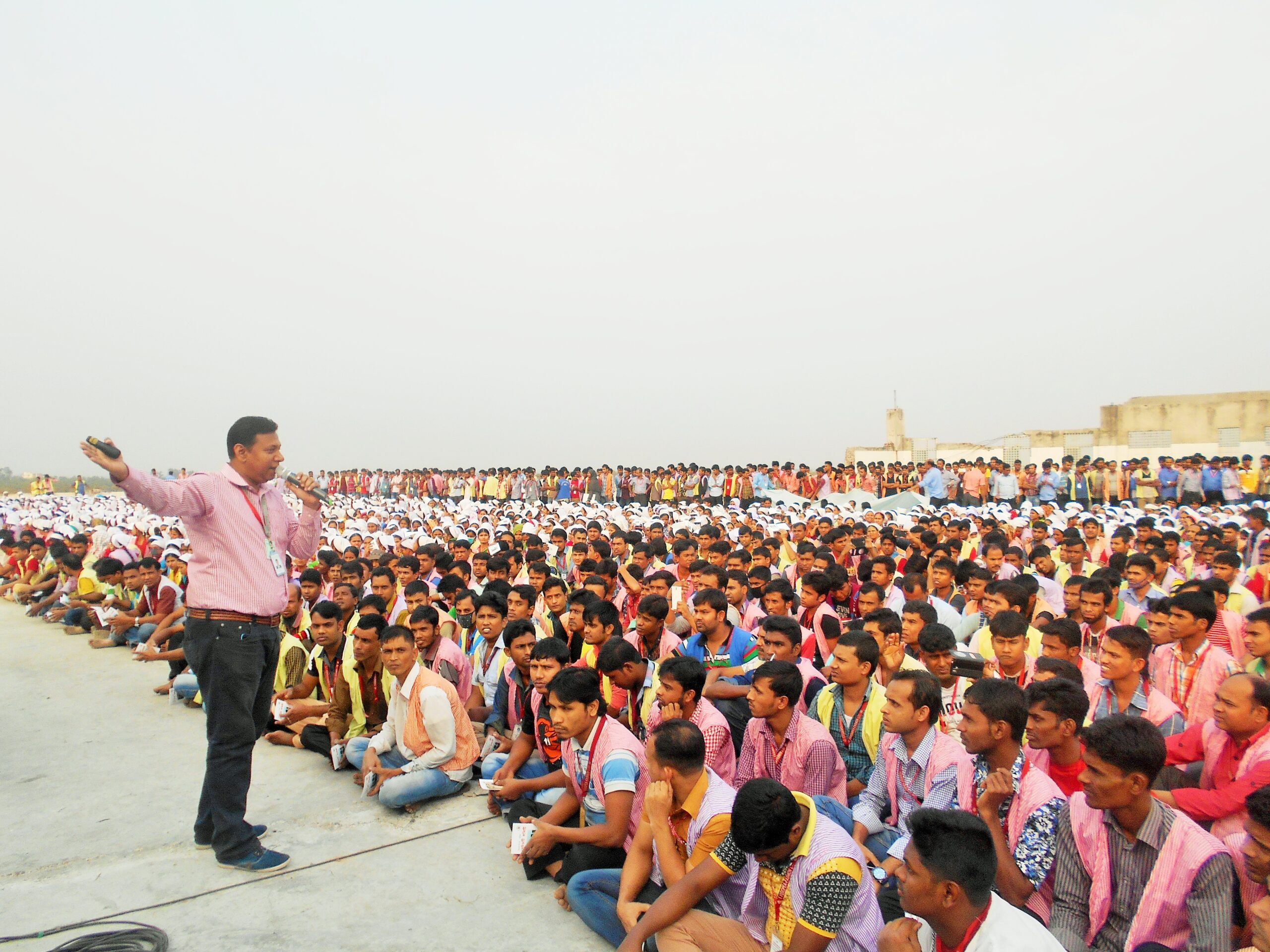
2013 Bangladesh Accord
In 2013, the Accord on Fire and Building Safety in Bangladesh started as a 5-year agreement to pursue workplace safety in the Ready-Made Garment (RMG) sector in Bangladesh.
The agreement was initially signed by 40 brands and retailers, 2 global trade unions, IndustriALL Global Union & UNI Global Union, and 8 Bangladesh trade unions in the immediate aftermath of the April 2013 Rana Plaza building collapse that killed more than 1,000 workers and critically injured thousands more.
2018 Transition Accord
By July 2015, the number of brand signatories had risen to 220 and by May 2018, the joint efforts of Accord stakeholders had significantly contributed to safer workplaces for over 2 million garment factory workers in Bangladesh.
To maintain and expand the achievements of the 2013 Accord, over 190 brands and retailers renewed their commitments by signing the 2018 Transition Accord with the global trade unions. The 2018 Accord ran for 3 years and included a commitment to transition the implementation of Accord programs to a national tripartite organisation now known as the RMG Sustainability Council (RSC).
2021 International Accord
In 2021 the Accord signatories renewed their partnership and established the International Accord for Health and Safety in the Textile and Garment Industry. This agreement confirms the continued commitment of signatories to support workplace safety programs in Bangladesh through cooperation with the RSC and further commits to establishing workplace safety programs in other countries based on the outcome of feasibility studies.
Over 175 company signatories signed the International Accord in the first year of this agreement with an additional commitment to exploring the scope of the agreement to address Human Rights Due Diligence (HRDD) issues in the textile and garment industry.
2023 International Accord and Bangladesh Safety Agreement
In November 2023, brands and trade unions negotiated a new country agreement named the The Bangladesh Agreement on Health and Safety in the Textile and Garment Industry (Bangladesh Safety Agreement) .
The Bangladesh Safety Agreement is a legally binding agreement between garment brands and trade unions to ensure worker health and safety in the Bangladeshi textile and garment industry. The Inspections and Remediation program, Safety Training, the Complaints Mechanism, and reporting and disclosure requirements of the Accord will continue to be implemented in Bangladesh by the RMG Sustainability Council (RSC), which was established in June 2020.
The Bangladesh Safety Agreement is implemented as a country program under the International Accord for Health and Safety in the Garment and Textile Industry (International Accord) framework agreement.
Brands and trade unions renewed their commitments for an extended three-year term, with an automatic renewal of another three years making it the longest Accord commitment to date. This new iteration of the International Accord took effect on 1 November 2023.
The 2023 International Accord serves as a framework for implementing the Accord’s country programs currently in Bangladesh and Pakistan, and future programs in other garment producing countries.
Related updates
February 23, 2023
35 signatories to the International Accord have signed the Pakistan Accord to ensure worker safety in the country’s textile and garment industry.
February 17, 2023
The International Accord organised a virtual side session on 13 February as a part of the OECD Forum on Due Diligence in the Garment and Footwear Sector to discuss the challenges & opportunities for the recently launched Pakistan Accord.
January 23, 2023
Accord Steering Committee member brands BESTSELLER, C&A, H&M, Inditex, Otto Group, and PVH Corp. have signed the Pakistan Accord.
January 23, 2023
Accord Steering Committee member brands BESTSELLER, C&A, H&M, Inditex, Otto Group, and PVH Corp. have signed the Pakistan Accord.
January 5, 2023
Article 40 of the International Accord provides that the parties to the agreement will explore the expansion of the scope to address human rights due diligence.
August 25, 2021
Building on the Bangladesh Accord’s progress, garment brands and global unions reach agreement on new, expanded worker safety pact.

